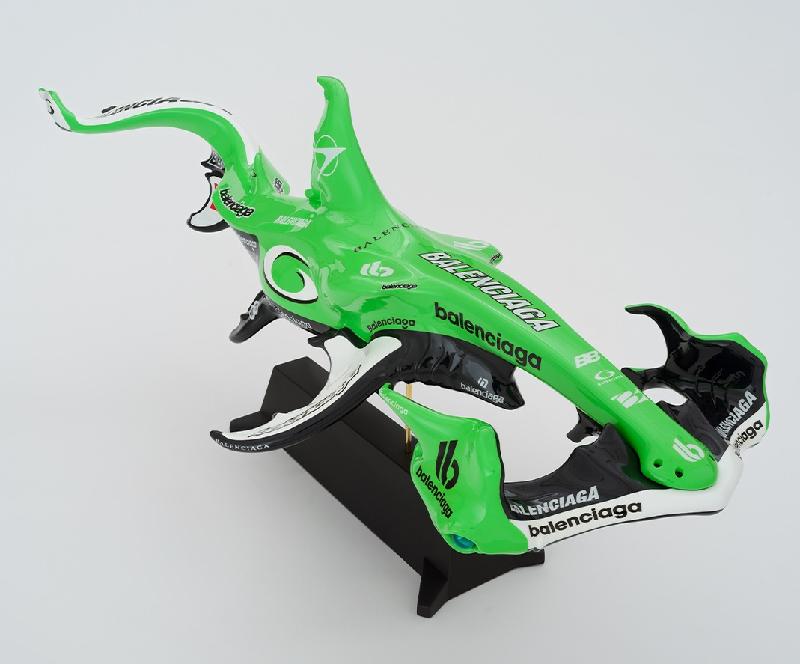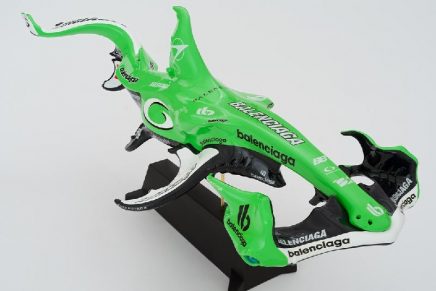Artificial Intelligence (AI) is not just enhancing the luxury industry—it’s transforming it. From hyper-personalized shopping experiences to sustainable practices, AI is carving out a more intuitive, efficient, and exclusive world for luxury consumers. Here’s a look at the most innovative uses of AI in the luxury industry for 2025, infused with creative flair and a critical lens.
1. Hyper-Personalized Luxury: AI as the Ultimate Stylist
AI is redefining personalization in the luxury world, going beyond just recommendations to crafting bespoke experiences.
AI-powered personal shopping assistants analyze individual preferences, online behaviors, and even mood indicators (via wearable tech or smart home devices) to curate one-of-a-kind wardrobes or décor. Gucci’s AI Concierge learns your style preferences and mood patterns, delivering a virtual showroom that changes dynamically—florals for summer afternoons or edgy pieces for late-night soirées. While hyper-personalization elevates exclusivity, it risks feeling intrusive. Do clients really want AI to predict their moods, or will it cross a line into overreach?
2. Virtual Luxury Stores: Shopping in the Metaverse
Luxury brands are stepping into the metaverse, creating immersive virtual boutiques where AI avatars guide shopping experiences.
AI-driven virtual shopping assistants in the metaverse interact in real-time, offering style advice, showcasing products in 3D, and even organizing virtual fashion shows. Balenciaga’s Virtual Flagship Store offers AI-guided tours of collections in an interactive, photorealistic environment, complete with custom avatars tailored to your physical likeness. While exciting, metaverse shopping might alienate traditional luxury consumers who value tactile experiences. The challenge lies in balancing innovation with the need for physical touchpoints.
3. AI-Powered Sustainability: Smarter Luxury Production
AI is helping luxury brands embrace sustainability by optimizing supply chains, reducing waste, and predicting consumer trends with precision.
AI-driven tools analyze data to minimize overproduction, recommend eco-friendly materials, and even track carbon footprints in real-time. Stella McCartney uses AI to create zero-waste patterns and recommend sustainable alternatives to animal-derived materials, aligning with the brand’s ethical ethos. While AI can streamline sustainability efforts, it doesn’t address the fundamental issue: luxury’s association with excess. Can AI truly reconcile opulence with environmental responsibility?
4. AI-Enhanced Jewelry Design Uses Algorithms To Meet Artistry
AI is venturing into the creative realm, assisting in designing intricate luxury pieces.
AI algorithms generate unique jewelry designs based on consumer preferences, historical inspirations, and current trends. Cartier’s Generative Design Platform allows clients to input inspirations—like a favorite landscape or personal memory—into an AI tool that crafts a bespoke jewelry piece. While AI accelerates creativity, there’s a risk of losing the “human touch” that defines artisanal craftsmanship. Will a machine-crafted design ever rival the soul of a hand-sketched piece?
5. Predictive Analytics for Exclusivity
AI’s predictive powers are being used to forecast trends and cater to ultra-exclusive demands.
Innovation: AI tools analyze vast datasets to identify emerging trends and pinpoint the next “it” product before it happens, ensuring brands stay ahead of the curve. Louis Vuitton uses predictive AI to anticipate which designs will be most coveted, ensuring limited-edition releases hit exactly the right note with collectors. Over-reliance on data could lead to homogeneity, where brands chase similar trends. True luxury thrives on individuality, which data alone can’t always provide.
6. AI in Wellness: Bespoke Well-Being for Luxury Clients
Luxury wellness is becoming smarter, with AI delivering hyper-tailored experiences.
AI-driven wellness programs analyze health metrics (from wearables) to craft personalized fitness routines, diet plans, and even mindfulness schedules. The Aman Wellness App uses AI to sync with luxury retreats, offering guests a pre-arrival health analysis and designing a bespoke itinerary of spa treatments, yoga, and nutrition. While impressive, AI wellness runs the risk of being overly clinical. Luxury clients may seek a more human touch when it comes to well-being.
7. AI-Generated Content: The New Digital Aesthetic
AI is helping luxury brands create stunning visual and written content faster and more effectively.
Innovation: AI tools like DALL·E and ChatGPT generate visually arresting campaigns, social media posts, and product descriptions tailored to specific audiences. Chanel’s AI-Powered Social Media Campaigns craft personalized Instagram ads for high-value clients, showcasing collections styled in ways that reflect the user’s taste. While AI content is efficient, it risks losing the storytelling depth that defines luxury branding. Can a machine-generated campaign evoke the same emotional connection?
8. AI-Driven Virtual Fitting Rooms
Online shopping for luxury items gets a high-tech upgrade with AI-powered virtual fitting rooms.
Innovation: AI scans a customer’s body (via smartphone cameras) to create an accurate digital twin, enabling precise virtual try-ons. Dior’s Virtual Couture Studio offers clients a realistic preview of how garments will look and fit before purchase.
While convenient, virtual fittings may not replicate the tactile and emotional experience of trying luxury pieces in-store. The key is to integrate these tools without replacing in-person fittings.
9. Smart Hotel Stays: AI in Luxury Hospitality
Luxury hotels are integrating AI to anticipate guest needs and elevate the stay experience.
Innovation: AI tools predict guest preferences based on prior stays, from room temperature settings to personalized minibars.Mandarin Oriental’s AI Butler uses machine learning to anticipate guest requests, such as preferred pillow types or dining preferences, ensuring seamless service.
Overuse of AI risks dehumanizing hospitality. UHNWIs often value the personal connection that a highly trained staff can provide.
10. AI in Auction Houses: Predicting and Valuing Luxury
AI is transforming the art and collectibles market by analyzing provenance, condition, and market trends to predict value.
AI tools assist in appraising rare items, flagging forgeries, and predicting which pieces will gain value over time. Christie’s AI Platform evaluates luxury watches, art, and jewelry, helping clients make informed investment decisions. While AI can enhance accuracy, the art market thrives on intangibles like provenance stories and emotional resonance, which data cannot quantify.
The luxury industry’s embrace of AI promises unparalleled innovation, from bespoke experiences to sustainability and predictive analytics. Yet, as brands lean into the efficiency and personalization AI offers, they must tread carefully to maintain the essence of luxury: human artistry, emotion, and exclusivity.
Can AI enhance without overshadowing the personal touch, craftsmanship, and storytelling that define true luxury? For 2025, the answer lies in balance—a symphony of machine precision and human elegance.





